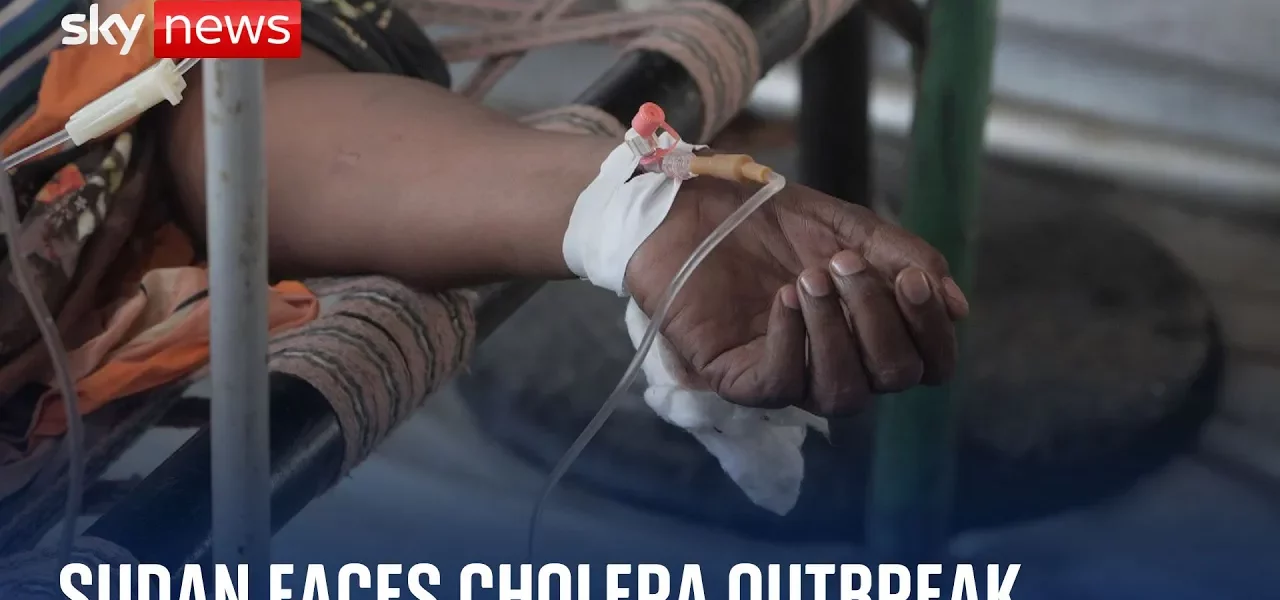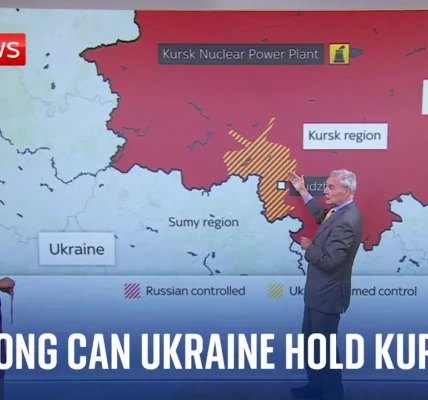The Hidden Frontline: The Impact of War and Disease in Sudan

This article delves into the devastating effects of war on public health in Sudan, focusing on the struggles faced by health workers and the plight of displaced families suffering from disease. The ongoing conflict has created a hidden frontline where cholera and other illnesses thrive amid chaos.
Introduction
Under the blue folds of fabric lies a teenage girl, too weak to walk or talk, as she is rushed into a quarantine ward designed to treat cholera. This scene encapsulates the grim reality of life in war-torn Sudan, where illness spreads rapidly due to the dire conditions of conflict. The suffering is not always visible; there are no bullets or bombs in this hidden battle, yet the toll taken on the population—young and old alike—is devastating as they confront a silent enemy: disease.
The Impact of War on Health
The ongoing war in Sudan has led to a humanitarian crisis that exacerbates health issues across the country. The displacement of families due to armed violence has resulted in overcrowded and unsanitary living conditions, which are breeding grounds for diseases such as cholera.
Health Challenges Faced by Displaced Populations
- Inadequate access to clean water
- Overcrowding in refugee camps
- Limited healthcare services available
- Increased vulnerability to infectious diseases
Many families fleeing violence find themselves in cramped camps where sanitation is poor. The lack of basic facilities has led to a significant rise in cholera cases, particularly among children, who are the most affected by these conditions.
The Role of Health Workers
Health workers in Sudan are at the forefront of this crisis, providing care under extreme pressure. Their dedication often comes at a personal cost, as they also face the repercussions of the war in their own lives.
Challenges Encountered by Health Workers
- Increased patient load due to mass displacement
- Limited medical supplies and resources
- Emotional toll from witnessing suffering
- Risk of personal safety in conflict zones
One health worker, Oma, expressed the overwhelming nature of her responsibilities: “There’s so much work to do, much more than before.” She returns home to care for sick family members as the state she hails from becomes riddled with disease. This highlights the interconnectedness of their personal and professional lives amid a collapsing healthcare system.
The Environmental Impact of War
In addition to the immediate health impacts, the war has led to significant environmental destruction, further complicating the public health crisis. Heavy rains have damaged crucial infrastructure, including water supplies.
Destruction of Water Supplies
The destruction of a major dam in Sudan’s Red Sea State has left many without access to clean drinking water. This situation is dire, especially in Port Sudan, where thousands of displaced individuals are already surviving on donated food and questionable water sources.
Consequences of Poor Water Quality
- Spread of waterborne diseases
- Increased malnutrition due to poor health
- Strain on healthcare services
The compromised water supply is a critical issue that exacerbates the suffering of those already in precarious situations, leading to higher mortality rates among vulnerable populations.
Personal Stories of Suffering
One poignant testimony comes from Umum, who articulated her despair: “I’m stranded. I can’t be there with my children, and I can’t live here with dignity.” Such statements highlight the emotional and physical toll that the ongoing conflict exerts on families.
Loss of Childhood and Family Connections
Children are particularly affected, losing their innocence and connections to family amidst the chaos. As one mother noted, her child could no longer recognize her, leading to heartbreaking moments of confusion and fear.
Conclusion
The situation in Sudan illustrates a complex interplay of war, disease, and human suffering. The hidden frontlines of this conflict are not marked by gunfire but by the cries of those afflicted by cholera and other illnesses. As we reflect on these challenges, it is crucial to support humanitarian efforts aimed at providing care and resources to those suffering in silence. To learn more about the ongoing crisis and how you can help, visit our related articles section.
“`




